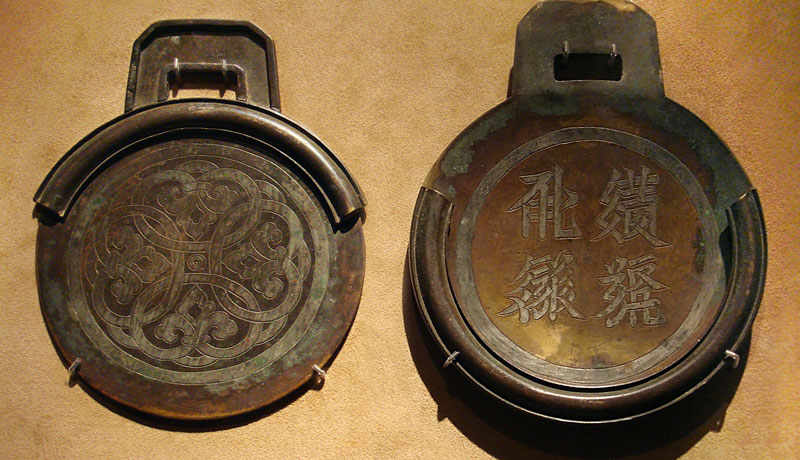Herbst Theatre, 401 Van Ness Avenue, San Francisco
Moderator: Uldis Kruze, Professor of History, University of San Francisco
Friday, February 11, 2005
Dynastic China and the Forbidden City
Lecture: Legacy of Beauty: The Ming Dynasty
The Ming dynasty (1368-1644) was founded by a Han Chinese peasant and former Buddhist monk turned rebel army leader. The dynasty reached its zenith of power during the first quarter of the fifteenth century. Richard Vinograd (Associate Professor and Chair, Department of History, Stanford University) will explore the story of the empire through its greatest artistic achievements.
Performance: From Beijing Opera to Contemporary Legend
Dimensions Performing Arts will demonstrate and explain the key dance movement, make-up, and martial art elements of Peking Opera. Premiere Taiwanese performer Hsing Kuo Wu will perform a segment from his landmark work “Kingdom of Desire”, in addition to excerpts from the “Monkey King” and the “Riding Horse.”
Saturday, February 12, 2005
Beijing: Seat of Empire
Lecture: Religion and the Forbidden City under the Manchu Court
Famous worldwide for its striking architecture and precious collections of cultural and art objects, the imperial city is filled with royal secrets, scandals, romances and tragedies. Susan Naquin (East Asian Studies Department Chair and Professor of History, Princeton University) will explore the Forbidden City and its rulers.
Lecture: Imperial Rebuses: Hidden Meanings in the Decorative Arts of the Qing Dynasty
Porcelains, jades, and textiles made for the palace have specific meanings. Terese Tse Bartholomew (Curator of Himalayan Art and Chinese Decorative Art, Asian Art Museum of San Francisco) will discuss the typical blessings, such as good marriage, sons, wealth, and longevity, as well as those that symbolized bumper harvests and one long reign without end.
Performance & Demonstration
Local performer and educator Mary Dotter will give an explanation and demonstration of the art of traditional Chinese storytelling.
Lecture: Mandate of Heaven: The Forbidden City
The Forbidden City is not merely a seat of imperial power, but an instrument of its projection. Mary Scott (Professor, Department of Humanities, San Francisco State University) will discuss the Forbidden City’s overall orientation, the sequence of courts and halls, the private imperial family quarters, and the various service areas as a series of purposefully designed and inhabited ritual spaces.
Lecture: Beijing (Interrupted)
As a result of wars and invasions, there are few existing buildings in China predating the Ming dynasty (1368–1644). Jeffrey Riegel (Professor of Chinese, Department of East Asian Languages and Cultures, UC Berkeley) recently spent a year in Beijing working on recently excavated manuscripts and other early texts. He lived in an old house right outside the east gate of the Forbidden City, close to long-time Beijing residents. He will share insights from his studies and experiences of the dramatic changes taking place in the city.
Panel Discussion
Discussion with all participants moderated by Uldis Kruze. Written audience questions to be addressed.
Presenters
Therese Tse Bartholomew, Curator, Himalayan Art, Asian Art Museum
Uldis Kruze, History, U of San Francisco
Susan Naquin, East Asian Studies, Princeton
Jeffrey Riegel, East Asian Languages, UC Berkeley
Mary Scott, History, San Francisco State University
Richard Vinograd, Asian Art, Stanford
